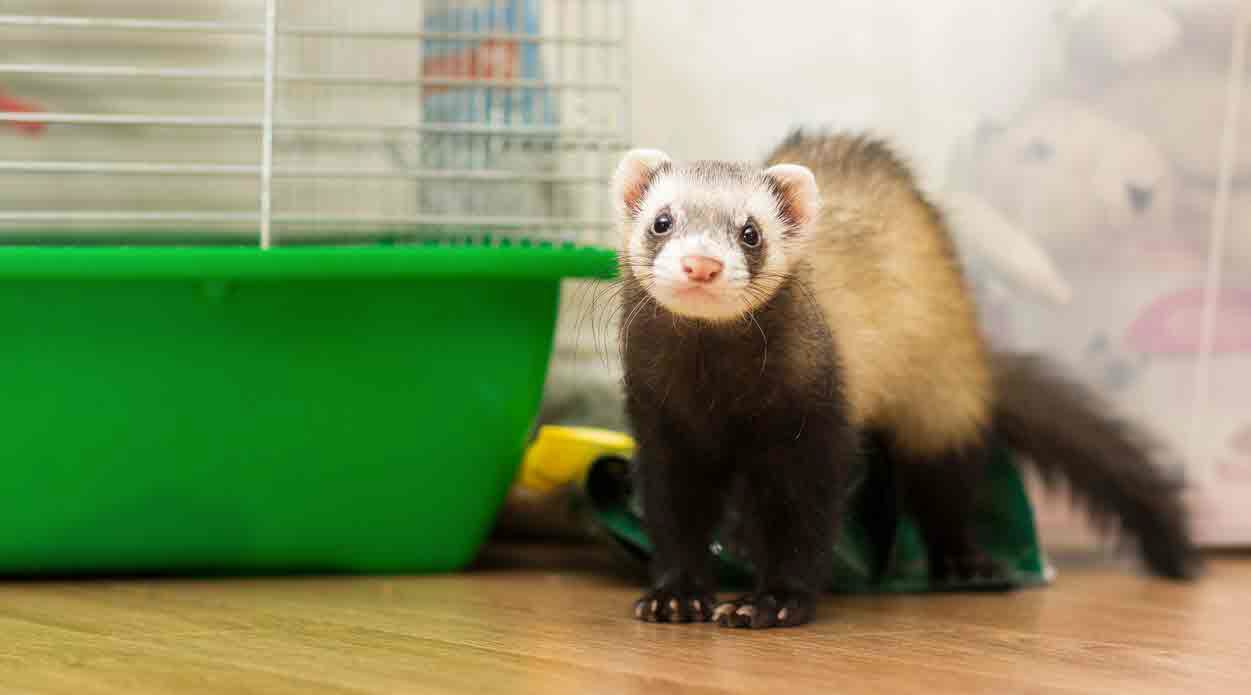Keeping ferrets as pets

Their name in Latin means ‘little thief’, a group of them is called a ‘business’ and humans have been keeping them for more than 2000 years. Ferrets have a long history with humans, starting as a hunter’s aid to flush out rabbits and increasingly becoming pets living inside our homes. However, ferrets as pets have unique needs and the key to keeping them healthy and happy is to accommodate these needs.
What do ferrets eat?
Ferrets are considered ‘obligate carnivores’ which means they should only eat a meat-based diet. A good option for pet ferrets is to provide a constant supply of high-quality commercial kitten food, as they have high metabolisms and require access to food at all times.
You can also treat your ferret with small pieces of human grade meat. Remember that clean, fresh water should always be provided to your ferret, ideally in heavy bowls to avoid spills. Be careful of leaving objects around the home that might inadvertently be chewed by your pet ferret.
Pet ferret behaviour
As a social animal, it’s better to house pet ferrets in pairs rather than alone. Make sure that both ferrets are desexed before housing them together, as desexing has important health benefits and will help social cohesion.
You will find your ferret is most active at dawn and dusk, and if you’re lucky you might observe the hilarious ‘weasel war dance’ which ferrets perform when happy and looking to play. Keep ferrets away from small animals in the same household, such as rabbits, guinea pigs, and kittens, as they have been known to prey on smaller pets.
Housing and toilet training your ferret
To keep them safe, ferrets should be confined to a secure area like a cage except when under supervision. An active and inquisitive species, ferrets left alone in the house will explore and chew random objects which could quickly put them in a dangerous situation which is why ferret cages are a good idea. The cage where your ferret sleeps should be as large as possible, allowing them at a minimum to stretch fully, walk around and easily turn around in the cage.
Ensure the cage is well-ventilated and contains different furnishings such as boxes, tunnels, and hammocks to keep things interesting for your ferret.
Did you know that ferrets can be trained to use a litter tray like a cat? Provide a litter box in the corner of their cage and change it daily.
Health
Don’t let their small size fool you, pet ferrets require health checks and preventative health care as much as any other pet. Ferrets require vaccines as they can get many of the same diseases as dogs, as well as flea and worming preventatives. Considered geriatric by 4 years of age, the short lifespan of ferrets means they need regular check-ups with their veterinarian to monitor for signs of dental disease and other chronic diseases.
Keep in mind that ferrets aren’t welcome pets in all areas of Australia. It is illegal in Queensland and the Northern Territory to keep ferrets as pets, and you require a license in the Australian Capital Territory.
